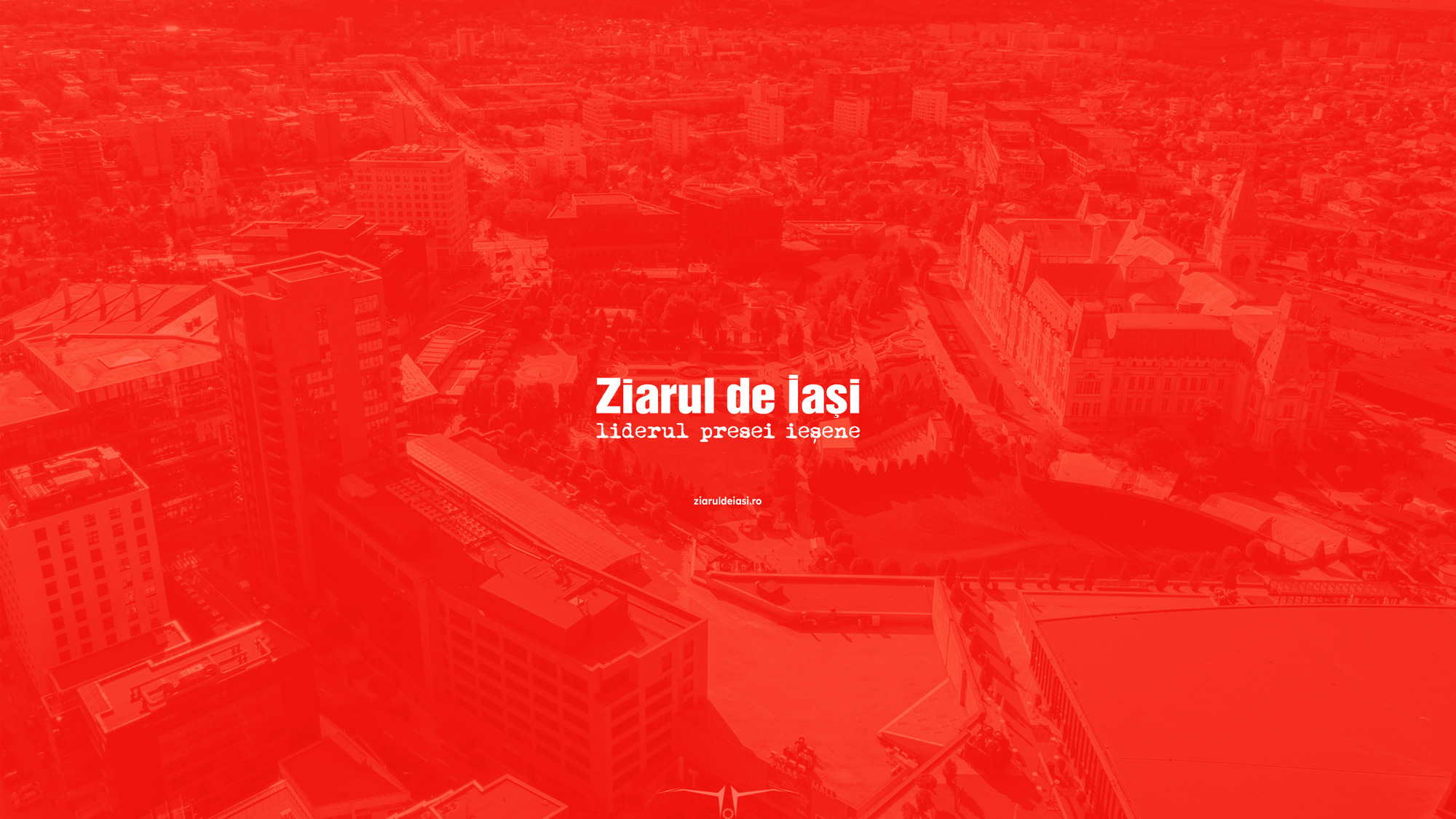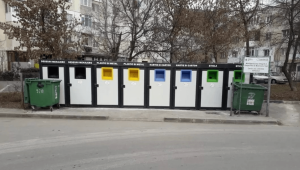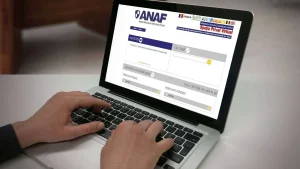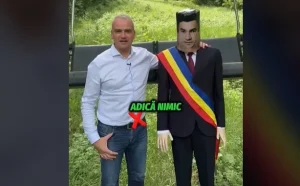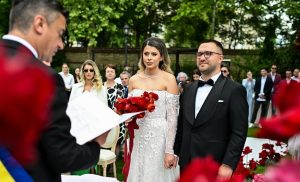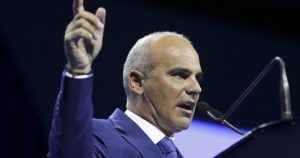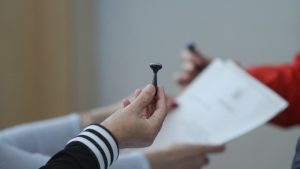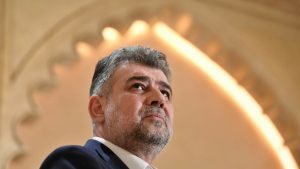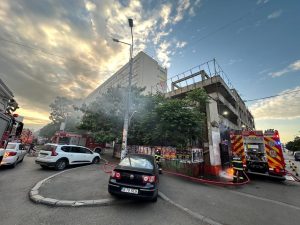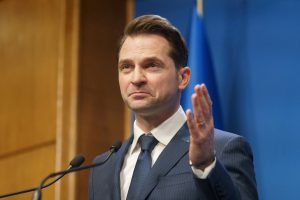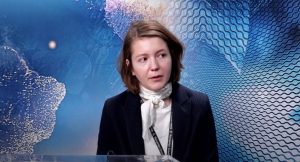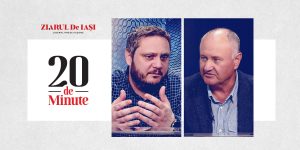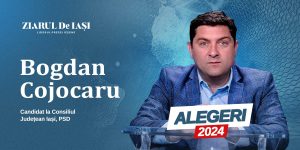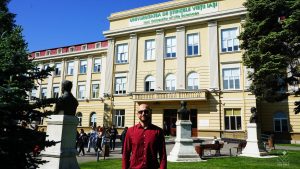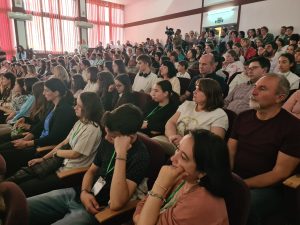
We don’t know whether the Nastase Cabinet is effective in reform matters. But we know that it has special communicational achievements. Who didn’t notice the promptitude, the incisiveness and the market sense that the Executive proves when it answers the public questions in its area? Or who didn’t feel the ability with which it proposes to the public debate issues that consume much energy (drought, mad cow disease, kitsch Balkan music, second-hand cloths an the most "civic" issue, the domestic violence), but without any important political stake? In flagrant contrast with the former power, the PDSR government shows it learned the lesson of the public communication and that it can transform it into an effective political instrument.
In the PDSR camp, there are two competing standpoints as for the communication between power and society. One of them is represented by Alexandru Mironov, the other by Vasile Sebastian Dancu, Minister of Public Information.
Alexandru Mironov, the famous character that once bombed us on the national TV channel with educational science fiction stories, at big audience hours, the one who last year rushed into a Romania TV studio to read a PDSR communiqué in a show where Ion Iliescu’s party was criticized, the well-intended individual who proposed Gabriel Liiceanu’s and Corneliu Coposu’s arrestment for having sympathized with the Piata Universitate phenomenon in 1990, tries hard now to get the top position in the Romanian Society of Television, for which he has big plans. In order to reach his objective, Mironov appeals to a real electoral campaign. For instance, in a central newspaper "discretely" controlled by PDSR, there appeared an explicitly advertising page in which Mironov proposes a "program draft" for the Romanian television. It is a text with all the pedagogical delirium of a character trained in the propagandistic school of the late communism. Mironov sees in the television "a university by waves" and in the watchers some "tele-students" eager to consume (excuse me, learn) from the educative shows dedicated to "the young farmer", "the globalization", "the informatics ABC’s" and "Romania’s geography" ("the National History misses, we don’t know why). The PDSR official in the Administration Council of SRTV doesn’t mention anywhere the presence of a market study that had funded his propositions, but he is convinced he knows what is best for the Romanians. According to him, "Romania 1" should be a "Discovery channel" dedicated to the Romanian nation. Looking up in the text, we can easily find the deep resorts of Mironov’s humanist propositions: "Without the public television and public radio, Adrian Nastase Cabinet has no chance to draw the country out the morass it is in now – in spite of the extraordinary speed with which the professionals chosen by the government started working". Therefore, the energy of Ion Iliescu’s friend originates in the fact that the Premier hasn’t paid him much attention when building his communicational strategy. Mironov, who thought he was the PDSR specialist in television matters, has to compete now with a new comer in the PDSR camp – Vasile Dancu – and he hopes to take his revenge taking over the leadership of SRTV (Romanian Society of Television).
The Minister of Public Information is infinitely more intelligent and reflexive than the apostle of SF in Romania. Dancu, known until the elections as the director of the "independent" Institute of opinion polls "Metro Media Transilvania", is one of the "guilty" for the electoral success of PDSR and for the good image the Nastase Cabinet enjoys.
Dancu’s vision as for the public communication is much better adequate to the times we live in, but, unfortunately, he responds to the same imperative as Mironov: manipulation. "Our whole life is a manipulation", Dancu says, in an interview, with wise cynicism, ignoring the interactive imperatives of the correct public communication. The declared target of the minister of Public Information is the one of inducing a "positive identity message". Therefore, PDSR, one of the most prolific media producers of national catastrophes (at the time of the former administration), discloses now civic virtues, militating for the building of a positive scenario as for Romania’s destiny.
The big surprise is just coming. As by accident, the TV channel "Antena 1", himself a big newsmonger of national disasters, announces all of a sudden that it changes its team and editorial strategy, deciding to avoid the catastrophic visions and to promote the image of a "normal" Romania. "Antena 1", a TV channel about which we could say it is in power now as the owner’s party is in an alliance with PDSR, commits for the period to come to be the agent of optimism in Romania. Is this possible that the sociologist Dancu might have suggested the ones in Dan Voiculescu’s party that optimism is an important factor for the social capital of the governmental actions?
We don’t want to indulge ourselves with illusions. The "Antena 1" channel is not completely controlled by PDSR. Dan Voiculescu has a personal agenda that isn’t always identical to the PDSR one. The plans of the unknown Romanian Humanist Party led by Voiculescu, a member of the Social Democracy Pole in Romania, are not quite identical with the PDSR ones. What is clear for now is that PDSR and "Antena 1"have reached a consensus as for the necessity to create in the media a positive Romania. Nobody forgets that the former power started declining in the opinion polls when the situation in Romania started being perceived by the agency of some apocalyptic terms ("disaster", "poverty", "chaos", "difficult conditions", "disorder", "uncertainty", "corruption") – terms used, the most often, in the PDSR discourses in order to characterize Romania’s situation under CDR (Romanian Democratic Convention).
PDSR’s change of attitude after the elections is not a result of a real change of situation in Romania, it is the effect of a modification of media strategy.
The sad part about it is that in all this story the Romanians are imagined to be some available actors, who yesterday played in a tragedy and today are ready play in a slop one, with happy end. (Adrian CIOFLANCA)

